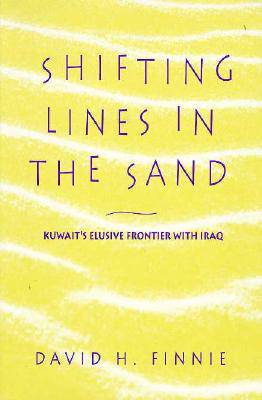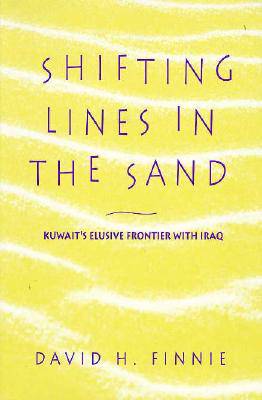
- Retrait gratuit dans votre magasin Club
- 7.000.000 titres dans notre catalogue
- Payer en toute sécurité
- Toujours un magasin près de chez vous
- Retrait gratuit dans votre magasin Club
- 7.000.000 titres dans notre catalogue
- Payer en toute sécurité
- Toujours un magasin près de chez vous
83,45 €
+ 166 points
Description
During the 1991 Gulf War, pundits and experts scrambled unsuccessfully to explain Iraq's "claim" to Kuwait. In a lucid and measured account of a complex historical and geographic drama that culminated in Operation Desert Storm, David Finnie elucidates the long Kuwaiti-Iraqi border dispute and lays Saddam Hussein's dubious claim to rest. He also raises larger questions about European colonialism and about the creation of new nation-states in the Middle East in the nineteenth and twentieth centuries.
Finnie vividly portrays how arbitrary the drawing of frontiers can be, and how they come to serve internal, regional, and international rivalries and ambitions. This history begins in the eighteenth century, when Kuwait was first settled by nomads from the Arabian desert. Finnie describes the country's growing prosperity under a merchant oligarchy, then shows how the Kuwaitis, seeking British protection from the sprawling Ottoman Empire, came to serve England's imperial strategy. He details the ways in which Britain parlayed its mandatory control of Iraq and its protectorate over Kuwait to curb the larger nation's ambitions and to ensure Kuwait's independence under British auspices. A fresh look at British diplomatic documents reveals how Whitehall covered its tracks, heading off the Iraqis, obfuscating League of Nations proceedings, and confounding scholars and researchers down to the present day. Pursuing his story through Britain's withdrawal from the Persian Gulf and Iraq's 1963 recognition of Kuwait's boundaries, Finnie examines the U.N. post-war measures to secure the frontier in the face of Iraq's continuing pressure for better access to Gulf waters.Spécifications
Parties prenantes
- Auteur(s) :
- Editeur:
Contenu
- Nombre de pages :
- 256
- Langue:
- Anglais
Caractéristiques
- EAN:
- 9780674806399
- Date de parution :
- 01-01-92
- Format:
- Livre relié
- Format numérique:
- Genaaid
- Dimensions :
- 165 mm x 244 mm
- Poids :
- 571 g







